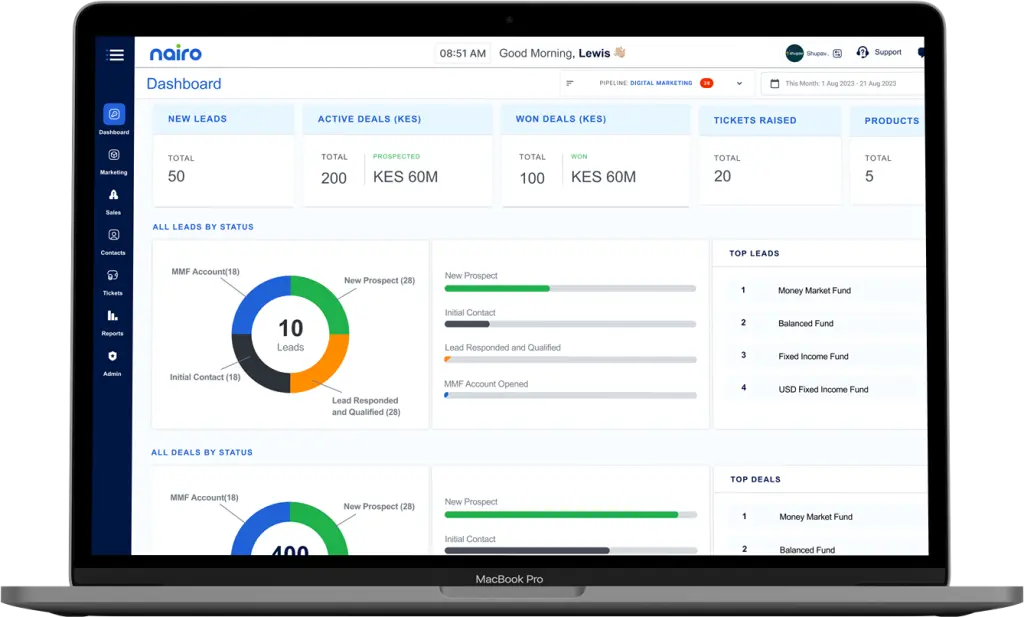Here’s something that keeps me up at night: I (Joyce from the PR Team) once worked with a thriving fashion boutique in Nairobi that was baffled by their declining sales despite a growing market. Their products were excellent, pricing competitive, and location prime – yet customers were silently disappearing. After diving into their operations, we uncovered the invisible leaks in their customer experience that were draining their business. This scenario plays out across thousands of African SMEs every day.
Did you know that acquiring a new customer costs 5-7 times more than retaining an existing one? Yet, African businesses are losing upwards of 20% of their customer base annually without even identifying the cause. Understanding the reasons African businesses are losing customers without realizing it has become critical for sustainable growth in today’s competitive marketplace. As someone who’s implemented CRM solutions across several African countries, I’ve seen the same patterns repeatedly—businesses focusing all their energy on customer acquisition while unknowingly pushing existing customers away.
Let’s pull back the curtain on the hidden reasons your African business might be losing customers and how modern CRM approaches can help you plug these leaks.
1. Inconsistent Customer Communication Across Channels
Last year, I visited a mid-sized electronics retailer in Dar es Salaam that couldn’t understand why their repeat purchase rate was so low. When we mapped their customer journey, we discovered something striking: customers who inquired via WhatsApp were getting completely different information than those who called or visited the store.
The Multi-Channel Confusion
African consumers are incredibly adaptable when it comes to communication channels. A single customer might inquire about a product via WhatsApp, follow up with a phone call, and finally visit your store—expecting you to remember all previous interactions. When you don’t, that disconnection creates friction.
According to research, the average African consumer now interacts with a business through 3-5 different channels before making a purchase decision. Each disconnected experience increases the likelihood they’ll abandon the journey altogether.
Real-Life Consequences
One electronics distributor in Kenya was losing 30% of their qualified leads because customer information collected via their Facebook page never connected with their in-store sales team. When interested customers visited the physical location, sales representatives had no record of previous discussions, forcing customers to repeat themselves and often receive contradictory information.
After implementing a centralized CRM system that integrated their digital and physical touchpoints, their conversion rate improved by 35% within three months!
What You Can Do About It
The solution isn’t necessarily investing in expensive technology—it’s about creating a simple, centralized system for tracking customer interactions. Even a basic CRM setup that connects WhatsApp Business, email, and in-store interactions can dramatically improve continuity.
For businesses with intermittent connectivity (a reality in many African markets), look for CRM solutions with offline capabilities that sync when connectivity returns. These systems ensure that customer information is consistent across all touchpoints, regardless of which team member handles the interaction.
2. Failure to Adapt to Local Payment Preferences
I remember consulting for a subscription-based software company targeting businesses in Nairobi. They couldn’t figure out why their trial-to-paid conversion rate was abysmal despite enthusiastic initial interest. The culprit? They only accepted credit cards in a market where mobile money dominates.
The Payment Disconnect
Across Africa, payment preferences vary dramatically, not just between countries but also between customer segments within the same country. While urban professionals in Nairobi might prefer card payments, small business owners often use M-Pesa, and rural customers might prefer cash-on-delivery options.
The statistics are eye-opening: in markets like Kenya, Tanzania, and Ghana, mobile money penetration exceeds 90% of the adult population, while credit card usage remains below 5% in many African countries. When your payment options don’t align with local preferences, you’re essentially telling many customers their business isn’t wanted.
Beyond Just Having Options
It’s not enough to simply offer multiple payment methods—you need to remember and suggest each customer’s preferred payment method. This is where proper CRM integration becomes crucial.
A restaurant chain we worked with in Lagos implemented a CRM system that tracked payment preferences and automatically suggested the customer’s usual payment method during checkout. This small customization increased their customer satisfaction scores by 25% and significantly reduced abandoned transactions.
What You Can Do About It
Begin by mapping the payment preferences across your customer segments. Then, ensure your CRM system captures and utilizes this information for every transaction. The most effective approach connects your CRM directly with local payment gateways, creating a seamless experience from the purchase decision to the completed payment.
For businesses operating across multiple African countries, region-specific payment templates within your CRM can automatically adjust options based on the customer’s location—offering M-Pesa in Kenya, MTN Mobile Money in Ghana, and appropriate alternatives elsewhere.
3. Overlooking Cultural Nuances in Customer Service
One of my most enlightening experiences came when helping a South African software company expand into Ethiopia. Despite offering an excellent product at competitive prices, they faced unexpected resistance. The issue? Their direct communication style was perceived as rude in a culture that values relationship-building before business discussions.
The Cultural Complexity of African Markets
Africa isn’t a single market—it’s 54 distinct countries with over 2,000 languages and countless cultural nuances. How you greet customers, the pace of business conversations, negotiation styles, and even color choices in marketing materials carry different meanings across regions.
I’ve seen Western-style customer service training fail spectacularly in certain African contexts because it missed critical cultural components that determine trust and relationship building.
Case Study: The Power of Cultural Adaptation
A retail chain operating in both Kenya and Rwanda implemented culturally specific customer service protocols based on CRM insights. In Rwanda, where formality is highly valued, customers were addressed by title and surname, while in Kenya, a warmer, more casual approach was used. Staff were guided by cultural notes attached to customer profiles in their CRM.
The result? Customer satisfaction scores increased by 40% in Rwanda and 24% in Kenya, simply by adjusting communication styles to match cultural expectations.
What You Can Do About It
Start by adding cultural preference fields to your customer profiles—language preferences, communication style preferences, and cultural background can inform better interactions. Then, train your team to leverage these insights during customer interactions.
Many modern CRM systems allow for custom fields and automated prompts that can guide staff through culturally appropriate customer interactions. Even simple reminders like “Prefers longer relationship-building conversation before business discussion” can transform customer experiences.
4. Inadequate Post-Purchase Follow-Up Systems
I’ll never forget working with a home appliance retailer in Kampala who was mystified by their low repeat purchase rates. Their products were quality, prices competitive, and initial sales experience excellent. But after tracking the customer journey, we discovered they had absolutely no follow-up process after purchase. It was as if customers ceased to exist once they left the store.
The Disappearing Act
This “disappeared seller syndrome” after payment is made plagues many African businesses. The statistics are compelling: customers who receive thoughtful follow-up within the first week of purchase are 60% more likely to return for another purchase within six months.
However, in a study of East African retailers, only 12% had any systematic follow-up process for transactions.
Beyond “How Was Your Experience?”
Effective follow-up isn’t just sending a generic “How was your experience?” message. It should be tailored to the specific purchase, timed appropriately, and designed to add genuine value.
During one of our projects, a furniture retailer we collaborated with implemented a tiered follow-up system through their CRM: for small purchases, customers received care instructions for their specific items; for medium purchases, they got video tutorials; and for large purchases, they received scheduled maintenance reminders and personal check-in calls. Their customer retention rate jumped from 22% to 67% in a single year!
What You Can Do About It
Implement a follow-up matrix based on purchase type, customer segment, and transaction value. Your CRM system should automate this process while maintaining personalization through custom fields.
For businesses with intermittent internet, consider SMS-based follow-up workflows that don’t require continuous connectivity. Even simple gestures like thank-you messages, usage tips, or maintenance reminders show customers you value their business beyond the initial transaction.
5. Failing to Track and Act on Customer Feedback
A manufacturing business in Thika, Kenya, was steadily losing market share despite competitive pricing. When we implemented a basic feedback system, we discovered their delivery packaging was consistently damaging products—something no one had bothered to tell them because there was no clear feedback channel. A simple packaging change reversed their declining sales almost immediately.
The Silent Majority
The hard truth about customer satisfaction is this: for every customer who complains, 26 others remain silent—they simply leave and never return. In many African markets, cultural factors can amplify this reluctance to provide negative feedback directly.
Our research across multiple African markets shows that while 70% of customers who had negative experiences never complained to the business, 65% shared their negative experience with friends and family.
Feedback Without Action is Pointless
Many businesses make the mistake of collecting feedback without creating systems to analyze and act on it. I’ve seen businesses with thousands of customer survey responses sitting unexamined in email inboxes or spreadsheets.
A hotel chain we consulted for in Kigali had been collecting guest comment cards for years without any system for aggregating or analyzing the data. When we finally processed this backlog through their new CRM system, clear patterns emerged that guided substantial improvements to their service offering.
What You Can Do About It
First, establish multiple feedback channels that respect how your customers prefer to communicate—this might include SMS, WhatsApp, in-person conversations, or traditional surveys. Then, ensure your CRM system centralizes this feedback for analysis.
Create a “feedback loop” protocol that categorizes inputs by urgency and type, assigns responsibility for follow-up, tracks resolution, and—most importantly—communicates back to customers about how their feedback has been addressed.
For unstructured feedback (like social media comments or conversational inputs), consider using sentiment analysis tools that integrate with your CRM to identify patterns you might otherwise miss.
Bringing It All Together: The CRM Mindset
The thread connecting all these customer retention challenges is the need for a systematic approach to managing customer relationships. CRM isn’t just software—it’s a mindset that prioritizes customer experience consistency across all touchpoints.
For African businesses, the right CRM approach can transform customer retention without requiring massive investment. Start small by addressing these five leak points in your customer experience:
- Connect your communication channels
- Adapt to local payment preferences
- Incorporate cultural nuances into customer service
- Develop thoughtful post-purchase follow-up
- Create closed-loop feedback systems
Remember, in most African markets, word-of-mouth remains the most powerful marketing channel. Every customer you retain becomes an ambassador who brings new customers to your business—often at zero acquisition cost.
I’ve seen businesses transform their growth trajectory by plugging these customer experience leaks. With the right CRM mindset, you can, too.
How to Address the Reasons African Businesses Are Losing Customers Without Realizing It
Implementing an effective CRM strategy is the key to stopping customer loss in African businesses. When you understand the reasons African businesses are losing customers without realizing it, you can take proactive steps to address these issues before they impact your bottom line. Here are the tangible benefits you’ll experience:
• Increased Customer Lifetime Value: By addressing these common retention issues, African businesses can extend customer relationships from months to years, increasing overall profitability by 25-95%.
• Reduced Marketing Costs: When you stop the silent customer exodus, you’ll spend less on constantly acquiring new customers to replace those who left. Most African businesses see marketing costs decrease by 30% when they improve retention.
• Enhanced Market Intelligence: Properly tracking customer interactions provides African businesses with invaluable market insights that can inform product development and service improvements.
• Competitive Advantage: In markets where most businesses are making these same mistakes, addressing these reasons that African businesses are losing customers gives you a significant edge over competitors.
• Sustainable Growth: Building on a stable customer base allows African businesses to focus on strategic expansion rather than constantly filling a leaking bucket.
Remember: Customer retention isn’t just about keeping existing revenue—it’s about creating brand advocates who bring new customers through referrals, which is particularly important in relationship-focused African markets.





